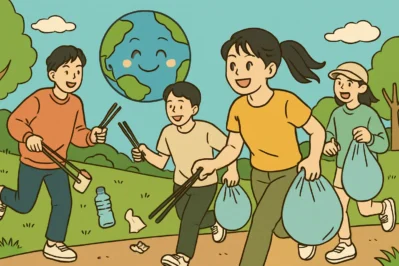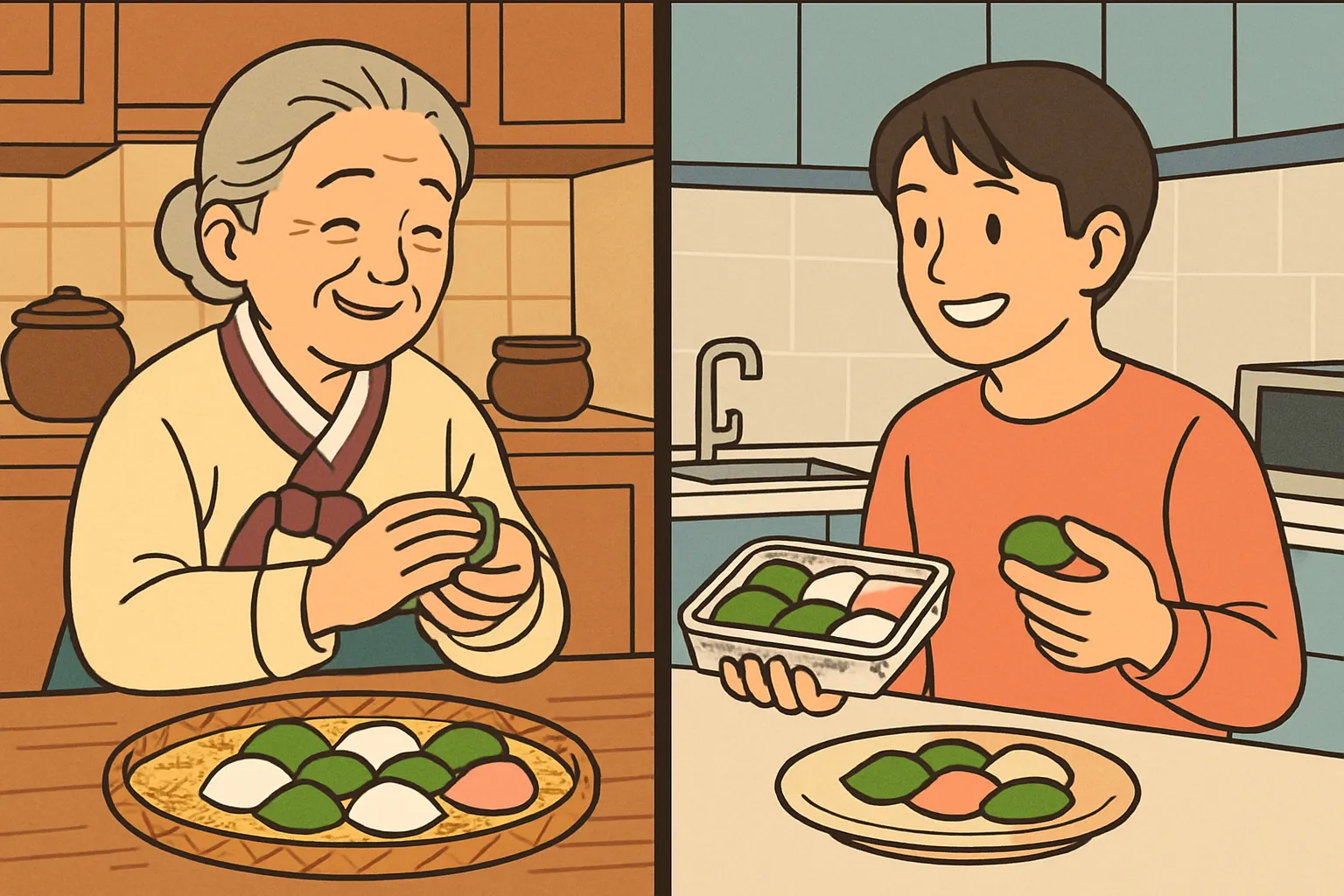Level Up Your Korean with the Earth Day Challenge!
Hello! This is 매일한글 (Maeil Hangeul), here to upgrade your Korean skills!
Have you ever wanted to read the news in Korean but felt it was too difficult? Don’t worry! Today, we’re going to learn some simple but essential words to understand news articles about a very important topic: Earth Day!
Lately in Korea, there’s a huge trend of participating in eco-friendly activities, especially among young people. You’ll see “zero-waste” challenges and “plogging” (picking up trash while jogging) all over social media. Learning today’s expressions will not only help you read the news but also understand what your favorite idols and young Koreans are talking about! Let’s get started!
Key Expressions You Need to Know
Here are three key expressions that will appear in any article about Earth Day events.
1. 지구의 날 (Jigu-ui Nal)
* Pronunciation [Romanization]: Ji-gu-eui Nal
* English Meaning: Earth Day
* Detailed Explanation: This is the direct translation for “Earth Day.” 지구 (jigu) means “Earth,” and 날 (nal) means “day.” The little word in the middle, 의 (ui), is a particle that shows possession, like ‘s in English. So, it literally means “Earth’s Day”!
2. 환경 보호 (Hwan-gyeong Bo-ho)
* Pronunciation [Romanization]: Hwan-gyeong Bo-ho
* English Meaning: Environmental Protection
* Detailed Explanation: This is a very important phrase! 환경 (hwangyeong) means “environment,” and 보호 (boho) means “protection.” You will see this combination everywhere, from news articles to campaign posters. It’s a slightly formal term, but everyone uses it when talking about this topic.
3. 참여하다 (Cham-yeo-ha-da)
* Pronunciation [Romanization]: Cham-yeo-ha-da
* English Meaning: to participate; to take part in
* Detailed Explanation: This is our action word for today! It’s a verb that means you are joining an event or activity. You can use it in many situations.
* Present tense: 참여해요 (cham-yeo-hae-yo) – I participate.
* Past tense: 참여했어요 (cham-yeo-hae-sseo-yo) – I participated.
* Future tense: 참여할 거예요 (cham-yeo-hal geo-ye-yo) – I will participate.
Example Conversation
Let’s see how these words are used in a real conversation. Imagine two friends, A and B, looking at a poster for a local event.
A: 와, 이거 봐! 지구의 날 ‘플로깅 챌린지’가 있네!
(Wa, i-geo bwa! Jigu-ui Nal ‘peul-lo-ging chael-lin-ji’-ga it-ne!)
Wow, look at this! There’s a ‘Plogging Challenge’ for Earth Day!
B: 오, 좋다! 나 요즘 환경 보호에 관심 많아.
(O, jo-ta! Na yo-jeum hwan-gyeong bo-ho-e gwan-sim ma-na.)
Oh, nice! I’m really interested in environmental protection these days.
A: 진짜? 그럼 우리 같이 참여할까?
(Jin-jja? Geu-reom u-ri ga-chi cham-yeo-hal-kka?)
Really? Then should we participate together?
B: 응, 좋아! 같이 참여하자!
(Eung, jo-a! Ga-chi cham-yeo-ha-ja!)
Yes, sounds great! Let’s participate together!
Culture Tip & Trend Deep Dive
In Korea, “Challenge Culture” (챌린지 문화) is huge, especially on social media like Instagram and TikTok. For Earth Day, you’ll see tons of posts with hashtags like #지구의날챌린지 (Earth Day Challenge) or #환경보호챌린지 (Environmental Protection Challenge).
Many K-pop idols and celebrities actively join these campaigns! For instance, you might see a news headline like: “인기 아이돌 그룹 OOO, 환경 보호 챌린지에 참여!” (Popular idol group OOO participates in an environmental protection challenge!). When idols do this, their fans often join in, creating a massive positive movement.
So, if you use the phrase “저도 환경 보호 챌린지에 참여했어요!” (I also participated in the environmental protection challenge!) on your social media, you’ll sound just like a trendy local!
Wrap-up & Practice Time!
Great job today! We learned three essential expressions: 지구의 날 (Earth Day), 환경 보호 (environmental protection), and 참여하다 (to participate). Now you’re ready to understand simple headlines and posts about eco-friendly events in Korea!
Let’s check what you’ve learned.
1. Fill in the blank:
저는 내일 한강 공원에서 열리는 지구의 날 행사에 ____________ 거예요.
(I will ________ in the Earth Day event at Han River Park tomorrow.)
(Answer: 참여할 / cham-yeo-hal)
2. Your Turn!
How can you practice 환경 보호 (environmental protection) in your daily life? Try to make a simple Korean sentence! (Example: 저는 텀블러를 사용해요. / I use a tumbler.)
Don’t be shy! Leave a comment below with your answer to the practice questions or by making a sentence with the words we learned today. I’d love to see them






